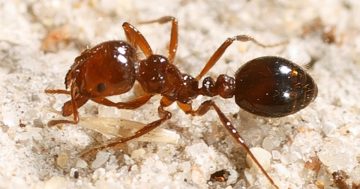 Scientists from the Department of Agriculture and Fisheries (DAF) have partnered with other Agencies in Australia and internationally, in an effort to protect the State’s beef industry from Lumpy Skin Disease (LSD).
Scientists from the Department of Agriculture and Fisheries (DAF) have partnered with other Agencies in Australia and internationally, in an effort to protect the State’s beef industry from Lumpy Skin Disease (LSD).
LSD is a highly infectious viral disease of cattle, and while Australia is currently LSD-free, recent cases reported in Indonesia present an imminent threat.
Minister for Agricultural Industry Development and Fisheries, Mark Furner said the DAF had partnered with Meat and Livestock Australia, the NSW Department of Primary Industries and United States-based biotechnology company, Tiba Biotech to create a world-first synthetic vaccine for LSD.
“A new mRNA vaccine would be a game changer as the live virus vaccines currently available overseas cannot be used in Australia,” Mr Furner said.
“Using existing vaccines here would result in us losing our disease-free status. A new mRNA vaccine would have the advantages of being potentially safer, with capacity for rapid development and lower-cost manufacturing.”
He said DAF scientists were also working on a second project with the Queensland Alliance for Agriculture and Food Innovation (QAAFI) at the University of Queensland. This involved a traditional protein-based vaccine, but with a delivery system that released the vaccine in cattle over an extended period.
Tim Mahony, from QAAFI’s Centre for Animal Science, said the team hoped to develop a prototype by the end of the year, using synthetically-produced materials.
“We have the advantage that our work is based on a cattle tick vaccine we developed a few years ago that is single dose technology developed in collaboration with a group from Swinburne University of Technology in Melbourne,” Professor Mahony said.
“Our end goal is to develop a vaccine that would be a weapon in our armoury that could be used if there were an outbreak here to help contain the virus and ideally avoid livestock being culled.”






